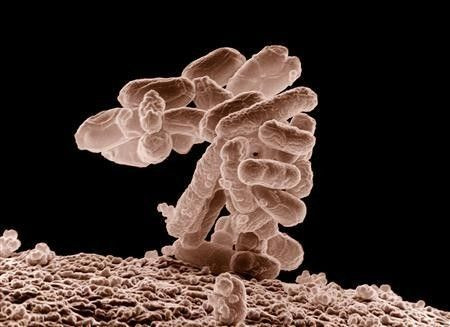Suicide Bacteria Kills Itself to Destroy Threats: Scientists

Scientists in Singapore are designing "suicide bomber" bacteria that kill a harmful microbe called pseudomonas aeruginosa. Those bacteria, which commonly infect hospital patients with compromised immune systems, target tissue and can cause fatal infections.
Nazanin Saeidi and Choon Kit Wong used the common lab bacterium Escherichia coli, which destroys itself in the process of eliminating the threat, CBS News reported.
The researchers' E.coli strains yield a protein called LasR, which recognizes molecules that P.aeruginosa cells use to communicate with each another. The protein switches on two genes after LasR detects the chemical signals. The first one produces a toxin called pyocin, which kills P.aeruginosa by penetrating it and causing its insides to leak out. The second gene then fires pyocin and produces a protein that causes E.coli to come apart. The gene then kills itself, releasing a torrent of deadly pyocin at P.aeruginosa.
P.aeurginosa's own weapons, the pyocins, are turned against it.
One of these weapons, a pyocin commonly known as S5, is half killer. The other half makes the host cell immune to its own weapons.
Saeidi and Wong said arming genes with pyocin S5 can significantly alleviate many problems for hospital patients caused by P.aeruginosa.
© Copyright IBTimes 2024. All rights reserved.





















